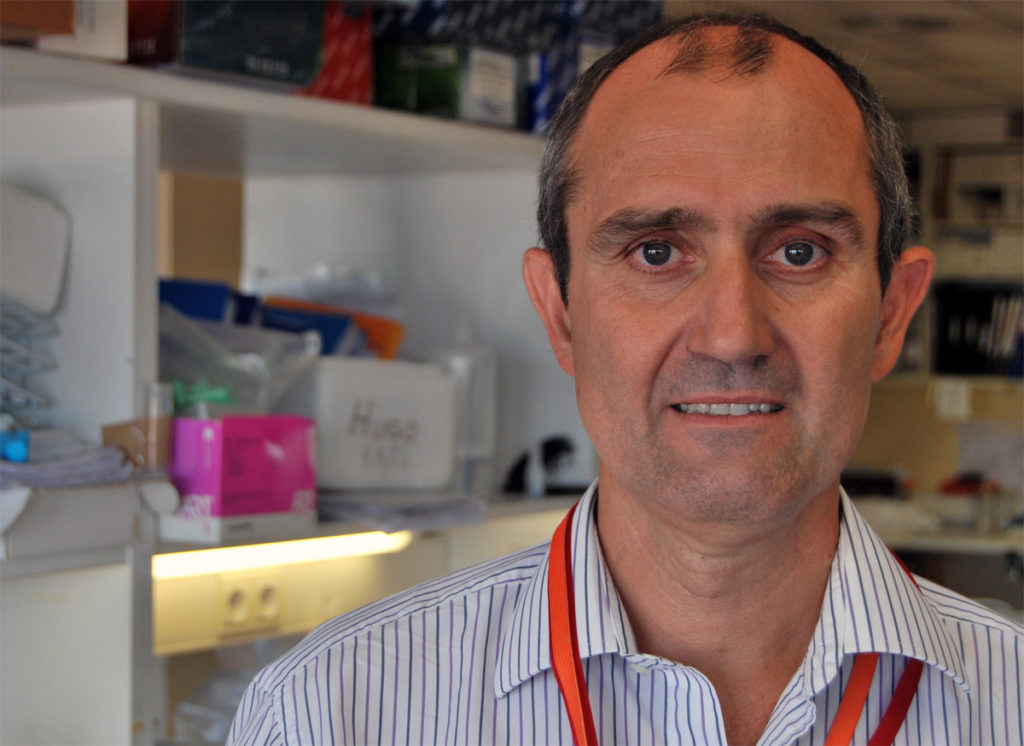Researchers at the Bellvitge Biomedical Research Institute (IDIBELL) and the Catalan Institute of Oncology (ICO), have presented encouraging results for hereditary cancer, which accounts for between 0.1% and 10% of tumors depending on the type of cancer. The identification of new predisposing genes and microRNAs involved in the development of hereditary cancers widens the path to the personalization of screening and early diagnosis methods for this type of cancers.
Dr. Gabriel Capellá, head of the IDIBELL hereditary cancer research group, presented these findings within the “XI Symposium on Cancer Global Vision: advances and results in research, from early diagnosis to metastasis” of the Scientific Foundation of the Spanish Association Against Cancer (AECC). His research group has managed to develop a panel of genes involved in hereditary cancer, which is currently being incorporated into the routine clinical diagnosis. In addition, Dr. Capellá’s team is analyzing whether the possible variants in the genes included in this panel may be useful in a more precise quantification of the risk of developing this type of tumor.
Quoting Dr. Capella, this research is “a paradigm shift in screening methods and patient care in hereditary cancer. On the one hand, being able to pinpoint the impact and the relationship between certain genetic alterations hitherto untested will allow us to improve our ability to quantify the risk of developing the disease, but not everything is about genetics; We also want to focus on early diagnosis methods, implementing more personalized protocols that reduce the use of invasive testing and save costs to the healthcare system. On the other hand, we would like to be capable of sharing all this information so that the patient understands and assumes his or her situation so that he or she can make informed decisions. ”
The objective of the AECC Symposium is to release the results of the projects it funds, reporting to society on the funds raised for research. In this symposium, AECC presented the results of 7 projects funded with € 5,340,000 from all of Spanish civil society. During the event, Ignacio Muñoz Pidal, president of the AECC and the AECC’s Scientific Foundation, pointed out that “research will be the only thing that can beat cancer and that is why, as a part of the AECC, it is one of our top priorities to fund the best cancer research possible.”

